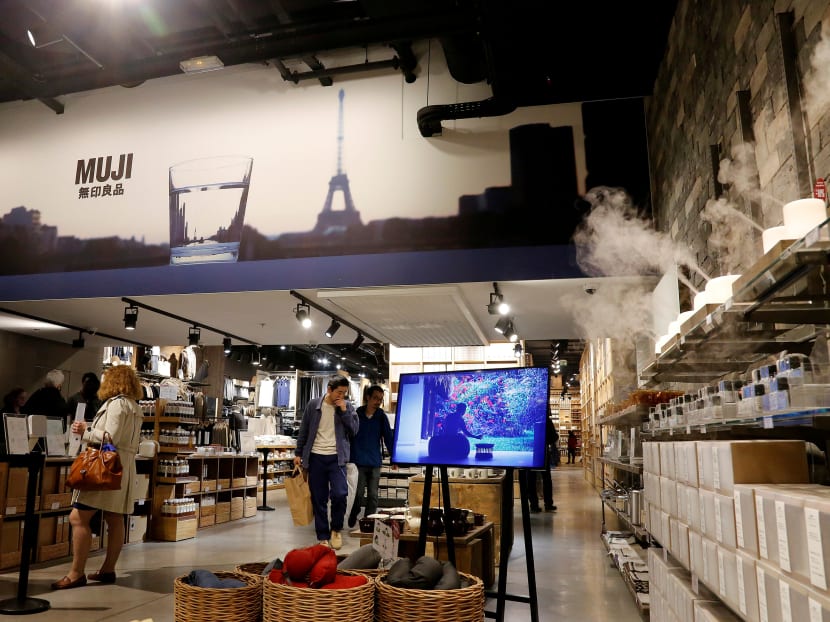Muji cleared after Chinese TV show says food irradiated
SHANGHAI — Shanghai government inspectors said they found no evidence to support a Chinese television show’s claim that Muji retail stores in the city stocked food imported from areas of Japan allegedly contaminated by radiation. The CCTV show allegations dragged the chain’s stock down Thursday in Tokyo.

View inside a Muji store. Reuters file photo
SHANGHAI — Shanghai government inspectors said they found no evidence to support a Chinese television show’s claim that Muji retail stores in the city stocked food imported from areas of Japan allegedly contaminated by radiation. The CCTV show allegations dragged the chain’s stock down on Thursday (March 16) in Tokyo.
The city’s Entry-Exit Inspection and Quarantine Bureau said it inspected food sold at Ryohin Keikaku’s Muji chain in Shanghai and cleared the items, according to a report in the state-run English-language Shanghai Daily newspaper on Friday.
China Central Television’s annual “name-and-shame” show that aims to uncover abuses by companies on Wednesday night fingered Muji and Japanese snackmaker, Calbee for mislabelling items. CCTV claimed labels concealed that food products originated from Japanese areas contaminated after 2011 nuclear meltdowns in Fukushima prefecture on the country’s northeast coast. China restricts food imports from those areas.
Shares of Ryohin Keikaku and Calbee lost more than US$213 million (S$298 million) in market value on Thursday following the CCTV report. Ryohin Keikaku shares rose about 2 per cent Friday as of 2.22pm in Tokyo, while Calbee stock gained 0.5 per cent.
Muji issued a statement on Thursday saying the labels on its products featured in the report showed the location of its Japan headquarters, which is in the region affected by the China restrictions. The company said it doesn’t sell products that contain ingredients from the regions of Japan that are subject to the ban. The company will continue selling its Japanese imported goods that have passed inspections by China, a spokesman said on Friday.
Muji has 183 stores in mainland China as of November 2016. It had 27 locations in Shanghai, according to a count of shops on their website.
CCTV didn’t immediately return an inquiry left by Bloomberg News at the station’s hotline number. The Shanghai quarantine bureau said by phone that it was still checking the Shanghai Daily report and couldn’t immediately confirm it. BLOOMBERG





